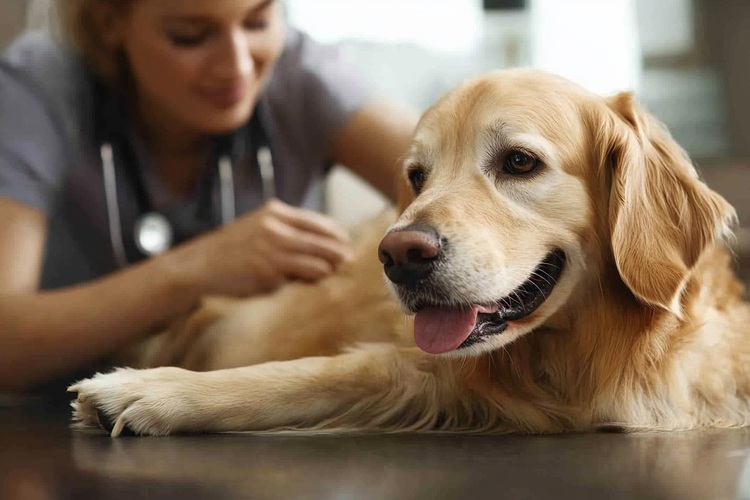Pet Insurance for Breed-Specific Health Conditions
Certain dog breeds face higher risks of hereditary health issues, from spinal disorders to cancer and joint problems. Understanding how pet insurance addresses these breed-specific conditions can help owners make informed decisions about coverage. This guide explores insurance options for common genetic health challenges in popular breeds.

Understanding Breed-Specific Health Risks
Dog breeds vary significantly in their susceptibility to certain health conditions due to genetic predisposition. Large and giant breeds often face joint and bone issues, while specific breeds carry heightened cancer risks or structural vulnerabilities. Pet insurance policies differ in how they handle these breed-specific conditions, with some offering comprehensive coverage and others imposing breed exclusions or waiting periods. Knowing which conditions affect your dog’s breed and how insurance providers approach coverage can prevent unexpected veterinary expenses.
Insurance Cover for IVDD in Dachshunds
Intervertebral Disc Disease (IVDD) affects Dachshunds at disproportionately high rates due to their elongated spines and short legs. This degenerative spinal condition can lead to pain, mobility loss, and in severe cases, paralysis requiring emergency surgery. Most comprehensive pet insurance policies cover IVDD treatment, including diagnostics, medications, physical therapy, and surgical intervention. However, many insurers impose waiting periods ranging from 14 days to 12 months for orthopedic and spinal conditions. Pre-existing conditions are typically excluded, making early enrollment critical for Dachshund owners. Treatment costs for IVDD can range from conservative management at several hundred dollars to surgical procedures exceeding $3,000 to $7,000, making insurance coverage particularly valuable for this breed.
Bernese Mountain Dog Cancer Coverage
Bernese Mountain Dogs face one of the highest cancer rates among dog breeds, with histiocytic sarcoma being particularly prevalent. Cancer treatment for dogs can involve diagnostics, chemotherapy, radiation, immunotherapy, and surgical tumor removal. Comprehensive pet insurance policies generally cover cancer treatment, though coverage limits, deductibles, and reimbursement percentages vary significantly. Some policies cap cancer treatment at specific dollar amounts annually, while others provide unlimited coverage within the policy year. Owners should carefully review policy documents for exclusions related to hereditary conditions and ensure cancer coverage includes both diagnostic procedures and treatment options. Given that cancer treatment can easily exceed $10,000 depending on the type and stage, appropriate insurance coverage provides essential financial protection for Bernese Mountain Dog owners.
German Shepherd Hip Dysplasia Insurance
Hip dysplasia represents a common orthopedic condition in German Shepherds, resulting from malformed hip joints that cause pain, arthritis, and mobility limitations. Insurance coverage for hip dysplasia typically includes diagnostic imaging, pain management, physical rehabilitation, and surgical options such as total hip replacement or femoral head osteotomy. Many insurers classify hip dysplasia as an orthopedic or hereditary condition, triggering waiting periods that can extend six months to a year after policy initiation. Bilateral hip dysplasia, affecting both hips, significantly increases treatment costs. Conservative management may cost $500 to $2,000 annually, while surgical intervention ranges from $1,500 to $7,000 per hip. Enrolling German Shepherds in pet insurance during puppyhood, before symptoms manifest, ensures the condition is not classified as pre-existing and denied coverage.
Great Dane Bloat Surgery Insurance
Gastric dilatation-volvulus (GDV), commonly known as bloat, poses a life-threatening emergency for Great Danes and other deep-chested breeds. This condition occurs when the stomach fills with gas and twists, cutting off blood supply and requiring immediate surgical intervention. Pet insurance policies typically cover emergency bloat surgery as an acute condition rather than a hereditary issue, though some insurers may impose breed-specific waiting periods. Preventive gastropexy, a surgical procedure that tacks the stomach to the abdominal wall to prevent twisting, may or may not be covered depending on whether the insurer classifies it as preventive or therapeutic. Emergency bloat surgery costs typically range from $2,000 to $5,000, including hospitalization and post-operative care. Great Dane owners should verify their policy covers emergency procedures and understand any breed-specific limitations.
Rottweiler Osteosarcoma Insurance
Osteosarcoma, an aggressive bone cancer, affects Rottweilers at higher rates than many other breeds. This cancer typically requires limb amputation followed by chemotherapy to slow metastasis. Comprehensive pet insurance policies generally cover osteosarcoma diagnosis and treatment, including advanced imaging, surgical procedures, chemotherapy protocols, and pain management. Coverage limitations may include annual or lifetime caps on cancer treatment, waiting periods for cancer coverage, and exclusions for experimental treatments. Osteosarcoma treatment costs vary widely based on the treatment approach, ranging from $5,000 to $15,000 or more for amputation and chemotherapy. Policies with higher reimbursement percentages and unlimited annual coverage provide the most financial protection for Rottweiler owners facing this diagnosis.
| Breed-Specific Condition | Typical Treatment Cost Range | Common Coverage Considerations |
|---|---|---|
| Dachshund IVDD | $500 - $7,000+ | Orthopedic waiting periods, pre-existing exclusions |
| Bernese Mountain Dog Cancer | $3,000 - $15,000+ | Annual limits, hereditary condition clauses |
| German Shepherd Hip Dysplasia | $500 - $7,000 per hip | Extended waiting periods, bilateral coverage |
| Great Dane Bloat Surgery | $2,000 - $5,000 | Emergency coverage, preventive gastropexy varies |
| Rottweiler Osteosarcoma | $5,000 - $15,000+ | Cancer treatment caps, chemotherapy inclusion |
Prices, rates, or cost estimates mentioned in this article are based on the latest available information but may change over time. Independent research is advised before making financial decisions.
Choosing Appropriate Coverage for Your Breed
Selecting pet insurance requires careful evaluation of breed-specific risks, policy terms, and financial considerations. Key factors include waiting periods for hereditary and orthopedic conditions, annual and lifetime coverage limits, reimbursement percentages, deductibles, and exclusions for pre-existing conditions. Enrolling dogs at young ages before conditions develop ensures maximum coverage eligibility. Comparing multiple providers and reading policy documents thoroughly helps identify the most suitable coverage for breed-specific health risks. Understanding your dog’s genetic predispositions and matching them with appropriate insurance protection provides both financial security and peace of mind throughout your pet’s life.




